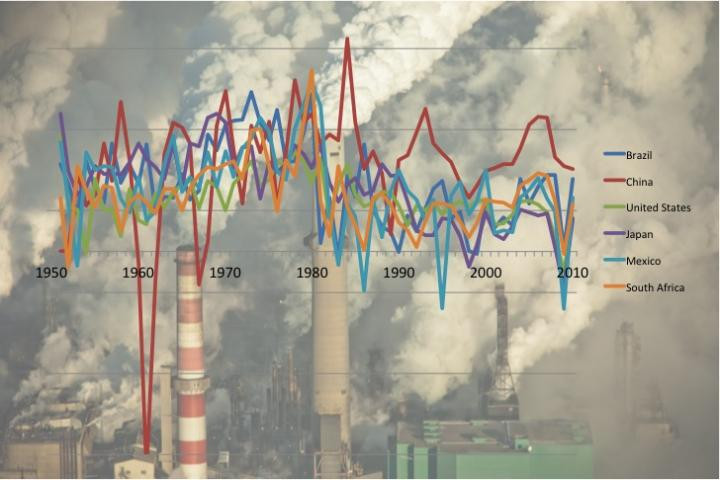Climate change: Social cost of carbon six times higher than current estimates

The cost of carbon emissions to society is six times higher than currently estimated, Stanford scientists have warned.
The social cost of carbon – the economic damage caused by CO2 emissions – was estimated by the US government to be $37 (£24) per ton by 2015. However, a US government-funded study has now found this figure is closer to $220.
Economic damage from CO2 emissions takes various forms but include climate change-related health problems and decreased agricultural yields.
Published in the journal Nature Climate Change, scientists said countries should increase their efforts to curb emissions. Study co-author Delavane Diaz explained: "If the social cost of carbon is higher, many more mitigation measures will pass a cost-benefit analysis. Because carbon emissions are so harmful to society, even costly means of reducing emissions would be worthwhile."
The team modified a model for calculating the social cost of climate change to incorporate recent findings that show it has the potential to slow growth rates substantially, particularly in poor nations.
The integrated assessment model (IAM) is used widely to analyse climate and energy policies. However, they fail to take into account how climate change damage might persist over time.

Frances Moore, study co-author, said: "For 20 years now, the models have assumed that climate change can't affect the basic growth-rate of the economy. But a number of new studies suggest this may not be true. If climate change affects not only a country's economic output, but also its growth, then that has a permanent effect that accumulates over time, leading to a much higher social cost of carbon."
In their modified model, they allowed climate change to affect the growth rate of the economy, accounting for adaptation techniques.
Findings showed that damages resulting from reduced economic growth rates will be justified in the long run by reaching the 2C target set out by the United Nations – an agreement to prevent global temperatures from raising no more than this by the end of the century, to prevent irreversible damage to the planet. It also showed developing countries will suffer most.
While the authors note there are flaws in their work – they do not take into account the time it takes to develop sustainable energy sources, for example – their work highlights the problems expected to arise in the near future.
Diaz said: "If temperature affects economic growth rates, society could face much larger climate damages than previously thought, and this would justify more stringent mitigation policy."
© Copyright IBTimes 2025. All rights reserved.






















